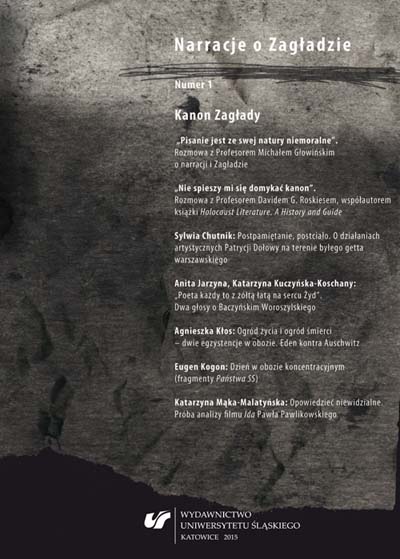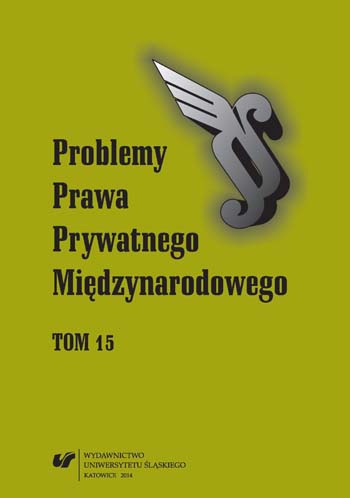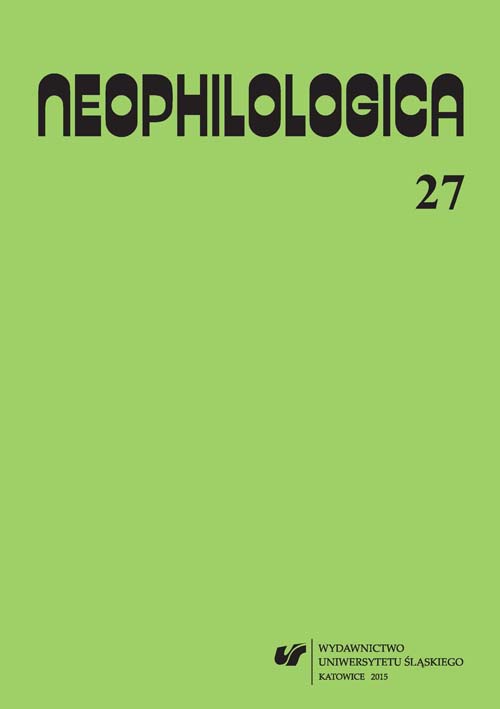
Reviews: The world with a shortage of wonders. Sylwia Chutnik: "W krainie czarów". Kraków, Społeczny Instytut Wydawniczy Znak, 2014
Recenzje: Świat z deficytem czarów. Sylwia Chutnik: "W krainie czarów". Kraków, Społeczny Instytut Wydawniczy Znak, 2014
The author discusses "W krainie czarów" (2014), the most recent collection written by Sylwia Chutnik. She indicates that the book features the themes which are familiar from the previous works of the writer: the matters associated with women, the history of Warsaw (its past and present), the Warsaw Uprising. However, the author of the review at the same time emphasises that "W krainie czarów" may be considered a unique entry in Chutnik’s literary oeuvre. It may be so not only due to the personal, almost confessional character of the eponymous story which opens the book but above all due to the fact that in "W krainie czarów" the Shoah assumes the importance of a separate theme, thus becoming apart from the Warsaw Uprising the second war area which is explored by the author of "Łączniczki".
More...

